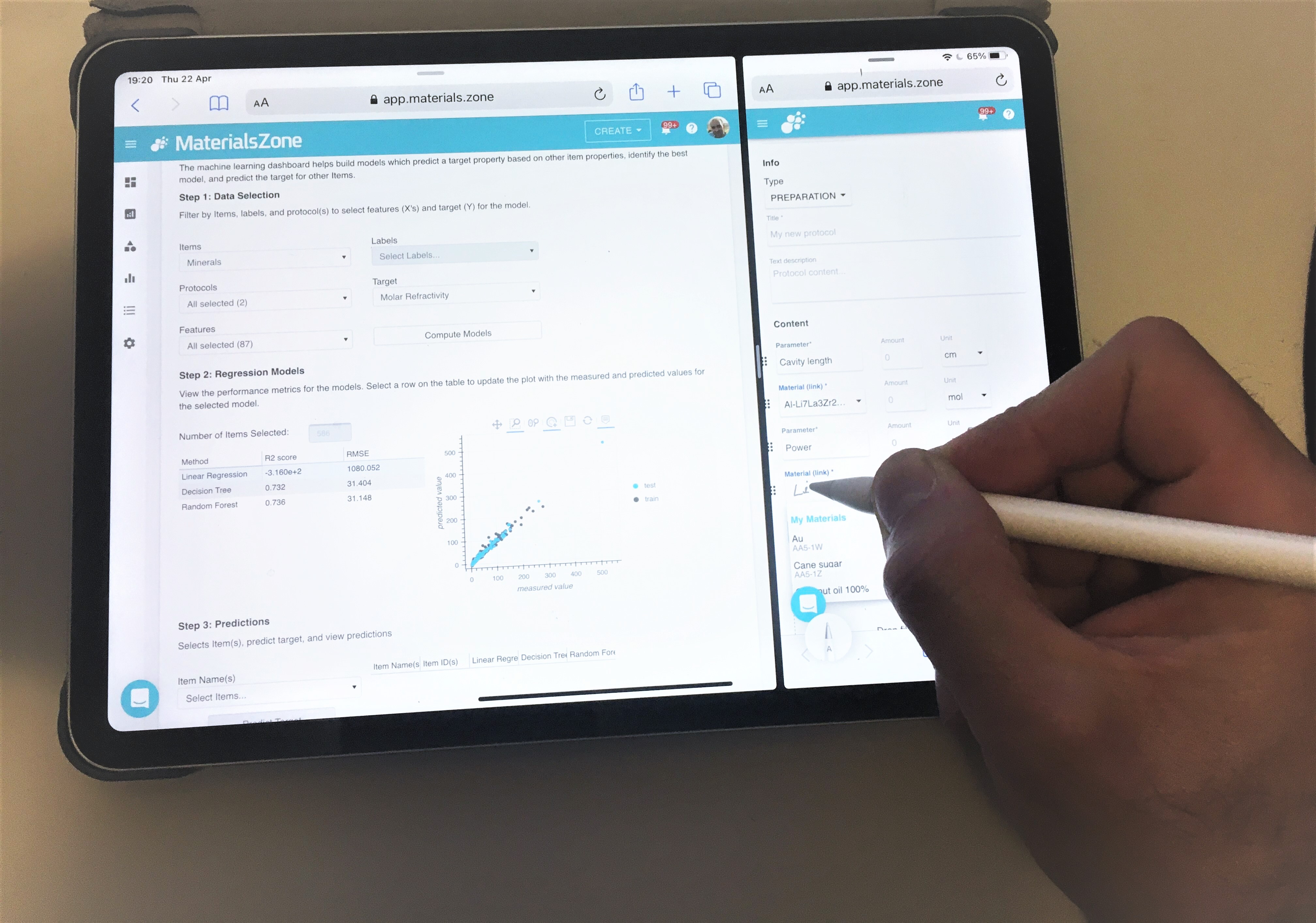- April 27, 2021
- by:
- in: Blog
TC Sessions: Mobility is back and we’re excited to give you the first look at who is coming to the main stage and what we plan to talk about. The event will be virtual, but never fear, we will bring you the same informative panels and provocative one-on-one interviews and networking you’re used to. The
TC Sessions: Mobility is back and we’re excited to give you the first look at who is coming to the main stage and what we plan to talk about. The event will be virtual, but never fear, we will bring you the same informative panels and provocative one-on-one interviews and networking you’re used to.
The new format has provided one massive benefit: democratizing access. If you’re a startup or investor, you can listen in, network and connect with other participants here in Silicon Valley. Plus, you’ll be able to meet all of the attendees through our matchmaking platform, CrunchMatch.
TechCrunch reporters and editors will interview some of the top leaders in transportation to tackle topics such as scaling up an electric vehicle company, the future of automated vehicle technology, building an AV startup and investing in the industry. Our guests include Scale AI founder Alexandr Wang, Zoox co-founder and CTO Jesse Levinson, Amy Jones Satrom of Nuro, famed investor Reid Hoffman, Joby Aviation founder JoeBen Bevirt, GM’s vice president of innovation Pamela Fletcher, Karl Iagnemma of Motional and Aurora co-founder and CEO Chris Urmson, to name a few.
Don’t forget, Early Bird Passes (including $100 savings) are currently available for a limited time; grab your tickets here before prices increase.
AGENDA
Self-Driving Deliveries with Ahti Heinla (Starship), Amy Jones Satrom (Nuro) and Apeksha Kumavat (Gatik)
Autonomous vehicles and robotics were well on their way transforming deliveries before the pandemic struck. In the past year, these technologies have moved from novel applications to essential innovations. We’re joined by a trio of companies — each with individual approaches that span the critical middle and last mile of delivery.
Supercharging Self-Driving Super Vision with Alexandr Wang (Scale AI)
Few startups were as prescient as Scale AI when it came to anticipating the need for massive sets of tagged data for use in AI. Co-founder and CEO Alex Wang also made a great bet on addressing the needs of lidar sensing companies early on, which has made the company instrumental in deploying AV networks. We’ll hear about what it takes to make sense of sensor data in driverless cars and look at where the industry is headed.
Will Venture Capital Drive the Future of Mobility? with Clara Brenner (Urban Innovation Fund), Quin Garcia (Autotech Ventures) and Rachel Holt (Construct Capital)
Clara Brenner, Quin Garcia and Rachel Holt will discuss how the pandemic changed their investment strategies, the hottest sectors within the mobility industry, the rise of SPACs as a financial instrument and where they plan to put their capital in 2021 and beyond.
From Concept to Commuter Car — and Beyond with Jesse Levinson (Zoox)
Zoox unveiled the design of its fit-for-purpose autonomous vehicle for the first time, after years of development and much anticipation. Meanwhile, the company was also acquired by Amazon in a high-profile deal that looks to give the company ample runway, while keeping its operations independent. We’ll hear from co-founder and CTO Jesse Levinson about what it’s like building an autonomous car company in the shadows of a commerce giant.
EV Founders in Focus with Ben Schippers (TezLab)
We sit down with the founders poised to take advantage of the rise in electric vehicle sales. We’ll chat with Ben Schippers, co-founder and CEO of TezLab, an app that operates like a Fitbit for Tesla vehicles (and soon other EVs) and allows drivers to go deep into their driving data. The app also breaks down the exact types and percentages of fossil fuels and renewable energy coming from charging locations.
The Future of Flight with JoeBen Bevirt (Joby Aviation) and Reid Hoffman (Reinvent Technology Partners)
Joby Aviation founder JoeBen Bevirt spent more than a decade quietly developing an all-electric, vertical take-off and landing passenger aircraft. Now he is preparing for a new phase of growth as Joby Aviation merges with the special purpose acquisition company formed by famed investor and Linked co-founder Reid Hoffman. Bevirt and Hoffman will come to our virtual stage to talk about the how build a startup (and keep it secret while raising funds), the future of flight and, of course, SPACs.
Equity, Accessibility and Cities with Tamika L. Butler (Tamika L. Butler Consulting), Tiffany Chu (Remix) and Frank Reig (Revel)
Can mobility be accessible, equitable and remain profitable? We have brought together community organizer, transportation consultant and lawyer Tamika L. Butler; Remix co-founder and CEO Tiffany Chu and Revel co-founder and CEO Frank Reig to discuss how (and if) shared mobility can provide equity in cities, while still remaining a viable and even profitable business. The trio will also dig into the challenges facing cities and how policy may affect startups.
The Rise of Robotaxis in China with Tony Han (WeRide), Jewel Li (AutoX) and Huan Sun (Momenta Europe)
Silicon Valley has long been viewed as a hub for autonomous vehicle development. But another country is also leading the charge. Executives from three leading Chinese robotaxi companies (that also have operations in Europe or the U.S.) will join us to provide insight into the unique challenges of developing and deploying the technology in China and how it compares to other countries.
Sponsored by Plus: Delivering Supervised Autonomous Trucks Globally with Shawn Kerrigan (Plus)
Plus is applying autonomous driving technology to launch supervised autonomous trucks today in order to dramatically improve safety, efficiency and driver comfort, while addressing critical challenges in long-haul trucking — driver shortage and high turnover, rising fuel costs, and reaching sustainability goals. Mass production of our supervised autonomous driving solution, PlusDrive, starts this summer. In the next few years, tens of thousands of heavy trucks powered by PlusDrive will be on the road. Plus’s COO and Co-Founder Shawn Kerrigan will introduce PlusDrive and our progress of deploying this driver-in solution globally. He will also share our learnings from working together with world-leading OEMs and fleet partners to develop and deploy autonomous trucks at scale.
Driving Innovation at General Motors with Pam Fletcher (GM)
GM is in the midst of sweeping changes that will eventually turn it into an EV-only producer of cars, trucks and SUVs. But the auto giant’s push to electrify passenger vehicles is just one of many efforts to be a leader in innovation and the future of transportation. We’ll talk with Pam Fletcher, vice president of innovation at GM, one of the key people behind the 113-year-old automaker’s push to become a nimble, tech-centric company.
AVs: Past, Present and Future with Karl Iagnemma (Motional) and Chris Urmson (Aurora)
TechCrunch Mobility will talk to two pioneers, and competitors, who are leading the charge to commercialize autonomous vehicles. Karl Iagnemma, president of the $4 billion Hyundai-Aptiv joint venture known as Motional, and Chris Urmson, the co-founder and CEO of Aurora, will discuss — and maybe even debate — the best approach to AV development and deployment, swap stories of the earliest days of the industry and provide a few forecasts of what’s to come.
EV Founders in Focus
We sit down with the founders poised to take advantage of the rise in electric vehicle sales. This time, we will chat with Kameale Terry, co-founder and CEO of ChargerHelp! a startup that enables on-demand repair of electric vehicle charging stations.
Sponsored by: Wejo: Making Mobility Data Accessible to Governmental Agencies to Meet New Transportation Demands with Bret Scott (Wejo)
Wejo provides accurate and unbiased unique journey data, curated from millions of connected cars, to help local, state, province and federal government agencies visualize traffic and congestion conditions. Unlock a deeper understanding of mobility trends, to make better decisions, support policy development and solve problems more effectively for your towns and cities.
Mobility’s Robotic Future with James Kuffner (Toyota Research Institute)
More than ever, automotive manufacturers are looking to robotics as the future of mobility, from manufacturing to autonomy and beyond. We’ll be speaking to the head of robotics initiatives at one of the world’s largest automakers to find out how the technology is set to transform the industry.
TICKETS
As a special “Easter egg” thank you for making it to the end of the article, you can save an additional 15% on tickets with promo code “agenda2021“. Put it in the ticket widget below, and save! Early Bird pricing ends in a couple of days so be sure to book your passes today for maximum savings.












